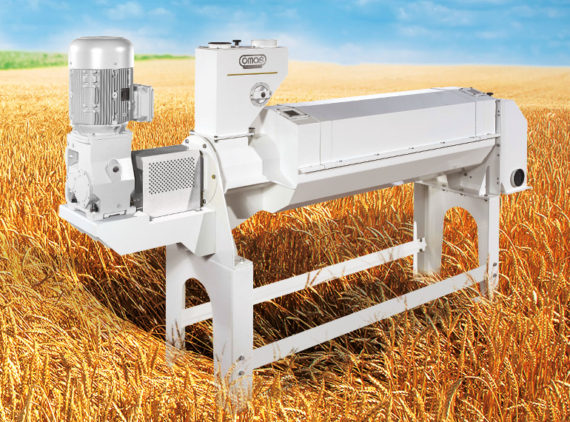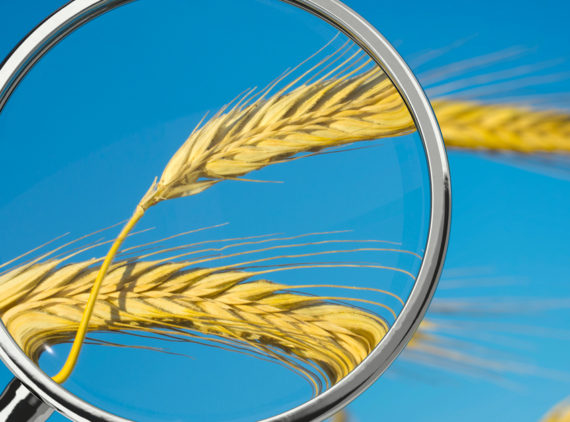
In the food industry more than in other sectors, the quality and the care of the product are essential, considering that any negligence in the processing affects the health of consumers.
The entire wheat grain production chain, from raw material storage to processing and transportation, must be monitored step by step to ensure product quality and health.
This involves the use of a proper hygiene plan of the milling plant and a constant control of the entire production process.
Cleanliness of the rooms: attention to floors, ceilings, walls and maintenance tools
For the milling industry, as in all food processing plants, it is necessary, first of all, to provide rooms that are properly wide to carry out operations in safety and hygiene, and each tool must have a sanitary authorization for the use for which it is intended.
The floors of workplaces, for example, must be made of waterproof, smooth and easily washable material, as well as durable material. The same applies to ceilings; moreover, there must be no cracks in which residual material could accumulate.
In the structures it is also important to provide an adequate ventilation, to disperse the accumulation of moisture that could give rise to the development of mold, as well as to provide anti-insect nets for the windows.
For the cleaning process there must be special rooms to store the disinfectant products, where entry will be allowed only to the authorized staff. The same applies to the maintenance tools.
How important is the hygiene of the staff?
The employed staff is probably one of the decisive factors in the quality guarantee of a milling plant. Those who work in this industry are carefully made aware of the use of safety and health standards already during their apprenticeship.
One of the main rules to be respected concerns the hygiene of clothing: in addition to the usual recommendations regarding the coverage of the beard and hair and the use of gowns and gloves, each worker is provided with suitable footwear for the working environment that must be worn exclusively inside the workrooms.
Filtering masks for the face are also used for powder risk.
However, it is not enough to dwell only on clothing: it is necessary to clean hands and forearms with hot water when there is the risk of contamination (use of services or return from the break in which foreign material has been touched).
Stainless steel and plastic food, the “friendly” materials used in machines for the milling industry
Moving on to the machines for the milling industry, we arrive at the heart of the production, where there are also greater risks of product contamination. Each machine is made of non-absorbent material (to avoid chemical contamination), resistant to abrasion (to prevent particles from being released), non-porous and non-toxic.
Some examples of suitable materials are stainless steel and plastic food, while aluminum can be subject to corrosion if exposed to specific disinfectants, so it should be used in parts of machinery that do not come into direct contact with the product.
All the processing phases of the cereal are designed to avoid the development of parasites or pathogens, especially in the critical stages of conditioning and cleaning.
Motor, filters, sieves and removable parts of the machines: how often should cleaning be carried out?
Even the components of the machinery must be studied properly: the motor must be positioned so that the addition of lubricant cannot contaminate the raw material; the filters and sieves for the flour must be easy to clean and a self-draining system must be provided for the appliances, thus preventing water stagnation.
For the cleaning of tools and equipment, a standard protocol accessible to all should be drawn up and followed. It must indicate the frequency with which it is necessary to disinfect or clean up the tools and equipment, and which are the products to be used. Usually sieves and filters are cleaned every week, while the removable parts of the milling plants are cleaned monthly.
The utmost care also for the transport
Finally we arrive at transport, where the change of environment can cause imbalances in the raw material or in the flour while affecting its quality. For flours, sealed tankers are used by the manufacturer and made in accordance with the Ministerial Decree 01/04/68 from a health and sanitary point of view, and then subjected to sanitation and cleaning procedures to avoid the accumulation of residual humidity.
All the examined stages are included in a continuous cycle, but the professionalism and the scrupulousness of the staff should never be lacking, as well as a constant updating on the required standards, since these factors allow to maintain high standards and maximum safety. The hygiene of the milling plant is only the first step for the realization and trade of healthy and high quality products!



